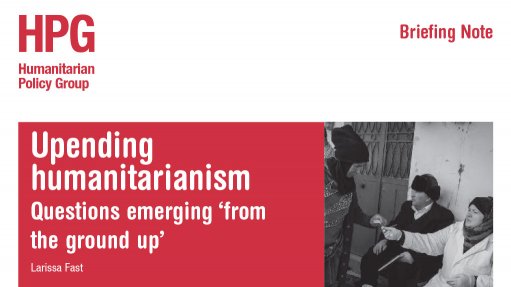
Since the World Humanitarian Summit in May 2016, the idea of responses that are ‘as local as possible, as international as necessary’ has emerged as both a central and a contentious point of departure for reforming the existing humanitarian architecture. Critiques of the system have led to calls to allow space for a more devolved humanitarianism that recognises that first responders are almost always local. Such a response is more contextually appropriate and attuned to existing needs; enhances flexibility and efficiency; and involves local aid actors and communities more meaningfully in humanitarian decision-making.
However, significant obstacles to implementation exist, including powerful vested interests in the current system and its division of resources, and little agreement on what ‘localisation’ and ‘locally led’ humanitarianism means in practice, and how best to achieve it. Against this background, the Humanitarian Policy Group (HPG) is embarking on in-depth research on four themes relevant to the concept and practice of a more local humanitarian response:
- Capacity and complementarity
- Non-traditional sources of aid financing
- The role of informal and cross-border actors in protecting civilians
- Dignity in displacement
This briefing note is based on an initial analysis of the concept of ‘localisation’ or ‘locally led’ humanitarianism from these four perspectives and proposes two central questions that have emerged from the research to date:
- Have we predetermined the outcome by setting the parameters of the debate?
- Have we misdiagnosed the problem?
If the humanitarian sector is serious about valuing humanitarianism from the ground up, we have to be willing to upend our existing assumptions about the meanings and practices of humanitarianism. At HPG, we will be exploring these and other questions in our ongoing research.
Report by the Overseas Development Institute